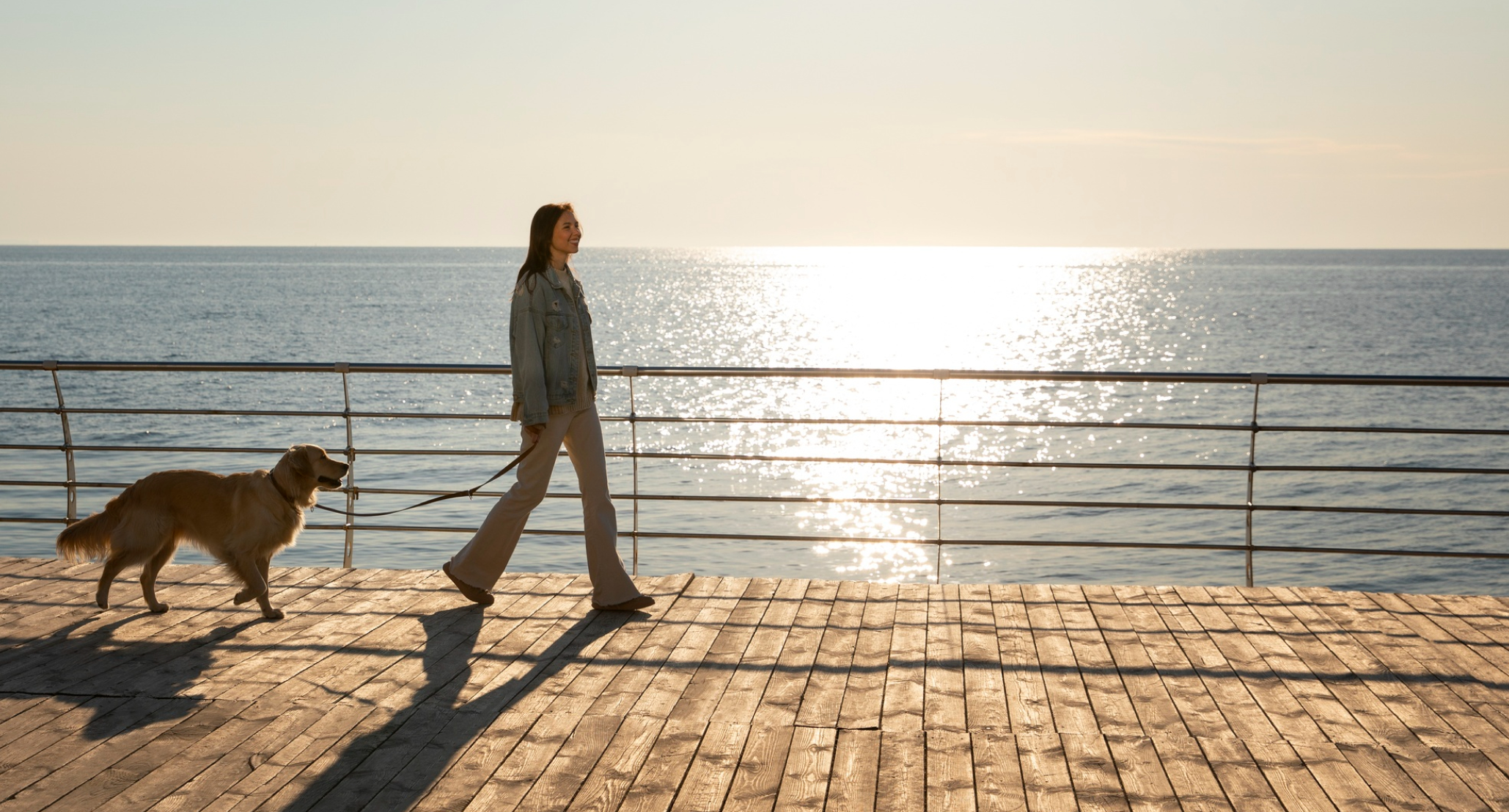As you navigate reducing or quitting alcohol consumption, your brain chemistry undergoes significant changes, particularly in serotonin levels - the neurotransmitter responsible for mood, sleep, and well-being. Alcohol artificially spikes and then depletes serotonin, leaving you feeling anxious, depressed, or irritable during withdrawal. Outdoor walking offers a natural solution by stimulating your body's own serotonin production through multiple pathways, helping restore balance without synthetic interventions.
The Science Behind Outdoor Walking and Serotonin
Outdoor walking works through several mechanisms to naturally boost serotonin production, making it a valuable tool for those seeking mood support during alcohol reduction. Here's how outdoor walking can help:
- Triggering serotonin through rhythmic movement. Walking creates a rhythmic, repetitive movement pattern that research links to increased serotonin activity [1]. Studies show that aerobic exercise like walking can boost tryptophan levels in the brain - the precursor to serotonin production [2]. Regular walking helps maintain steady serotonin levels, which is particularly important when recovering from alcohol's disruptive effects on brain chemistry.
- Enhancing production through sunlight exposure. Sunlight exposure helps regulate serotonin through multiple pathways. Bright light entering the eyes signals the brain to produce more serotonin while reducing melatonin during daytime hours [3]. Additionally, sunlight on skin produces vitamin D, which research suggests plays a role in serotonin synthesis [4]. Even on overcast days, outdoor light is significantly brighter than typical indoor lighting, providing mood-boosting benefits.
- Activating the prefrontal cortex. Walking outdoors engages the prefrontal cortex differently than indoor exercise. This brain region, responsible for emotional regulation and decision-making, shows increased activity during nature walks [5]. The enhanced prefrontal function helps manage cravings and improves your ability to stick with alcohol reduction goals.
- Reducing stress hormones. Research on nature exposure shows that spending time outdoors can lower cortisol levels and reduce psychological stress [6]. One study found that walking in natural environments for as little as 15 minutes was associated with reduced cortisol compared to urban walking [7]. Since chronic stress can interfere with serotonin function, the stress-reducing effects of outdoor walking create better conditions for mood regulation.
- Improving gut-brain communication. Physical activity like walking supports digestive health and may influence the gut-brain axis - the communication pathway between your digestive system and brain. Since the gut produces neurotransmitters including serotonin, maintaining gut health through regular movement may support overall mood regulation. For those recovering from alcohol's effects on digestive health, gentle exercise like walking can aid in restoration.

Tips for Incorporating Outdoor Walking Into Your Routine
Outdoor walking is simple and accessible for most people. Here's how to make it a consistent habit:
- Start with morning walks. Begin your day with a 15-20 minute outdoor walk to set a positive tone. Morning sunlight exposure helps regulate your circadian rhythm and provides the strongest serotonin boost. This early walk can replace the ritual of reaching for a drink later in the day.
- Use the "habit stacking" technique. Link your walking habit to existing routines. Walk immediately after breakfast, during your lunch break, or right after work. By connecting walks to established habits, you're more likely to maintain consistency, especially during challenging days when cravings are strong.
- Find green spaces. While any outdoor walking helps, research shows that walking in nature — parks, trails, or tree-lined streets - provides enhanced mental health benefits [8]. The combination of movement and nature exposure creates a synergistic effect on serotonin production and stress reduction.
- Track your progress. Use a simple journal or app to record your daily walks and mood changes. Many people notice improved mood within the first week of consistent outdoor walking. Tracking helps you see the connection between walking and feeling better, reinforcing the habit during your alcohol reduction journey.
Making It Work in Different Conditions
Outdoor walking can be adapted to various circumstances and challenges:
- Weather considerations. Don't let weather derail your habit. Dress appropriately for conditions - layers for cold, breathable fabrics for heat, and waterproof gear for rain. Even a brief 10-minute walk provides benefits. On truly extreme weather days, consider mall walking or covered areas that still offer some natural light exposure.
- Time constraints. Break walks into smaller chunks if needed. Three 10-minute walks provide similar benefits to one 30-minute walk. Use work breaks, park farther away, or take walking meetings to incorporate movement into your existing schedule.
- Safety and accessibility. Choose well-lit, populated routes for your walks, especially if walking alone. Let someone know your route if walking in isolated areas. If mobility is a concern, start with very short distances (even 5 minutes) and gradually increase. Using a walking aid or finding benches along your route for rest breaks can help make walking more accessible.
If you have any physical limitations or health concerns that might affect your ability to walk, consult your healthcare provider for personalized recommendations.
Summing Up
The mood-boosting and serotonin-enhancing effects of outdoor walking make it an invaluable tool for anyone trying to drink less. By naturally stimulating serotonin production through movement, sunlight, and nature exposure, daily walks help restore the chemical balance that alcohol disrupts. The accessibility and simplicity of walking make it easy to maintain even during challenging times. This makes outdoor walking a foundational habit for managing mood, reducing cravings, and building the mental resilience needed throughout your alcohol reduction journey.













